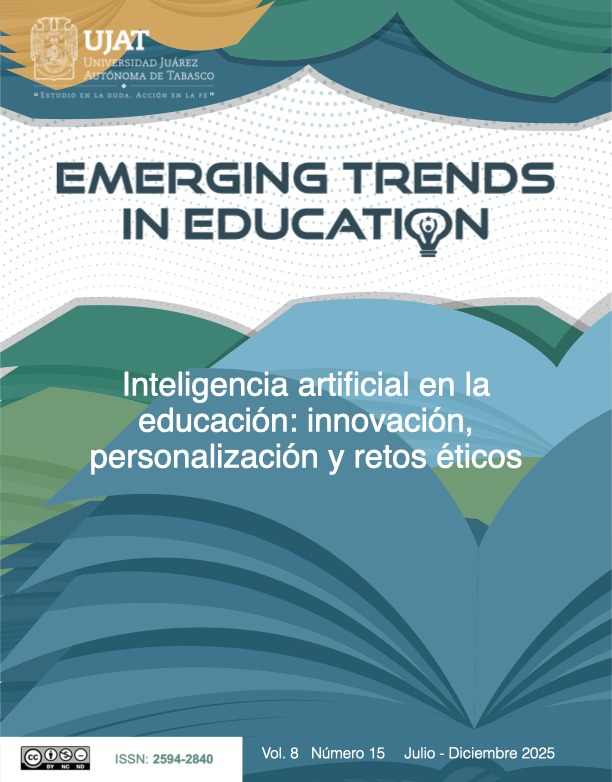
Vol. 8 No. 15 (2025): Artificial intelligence in education: innovation, personalization and ethical challenges

Artificial intelligence (AI) is rapidly transforming the field of education, offering innovative tools that personalize learning, improve academic management, and facilitate access to knowledge. AI-based platforms allow content to be tailored to each student's individual needs, identifying knowledge gaps and proposing specific activities to reinforce them. However, its implementation is not without challenges; these include the digital divide, technological dependence, and the potential loss of the teacher's critical role in the educational process. Furthermore, important ethical questions arise related to data privacy, algorithmic bias, and transparency in automated decisions. It is essential to ensure that the use of AI in education does not reinforce existing inequalities or unfairly condition students' academic and professional futures. Therefore, its integration must be accompanied by solid regulatory frameworks, adequate teacher training, and a human-centered approach. Technology can enhance education, but it can never replace the fundamental values that underpin meaningful and responsible learning.



























